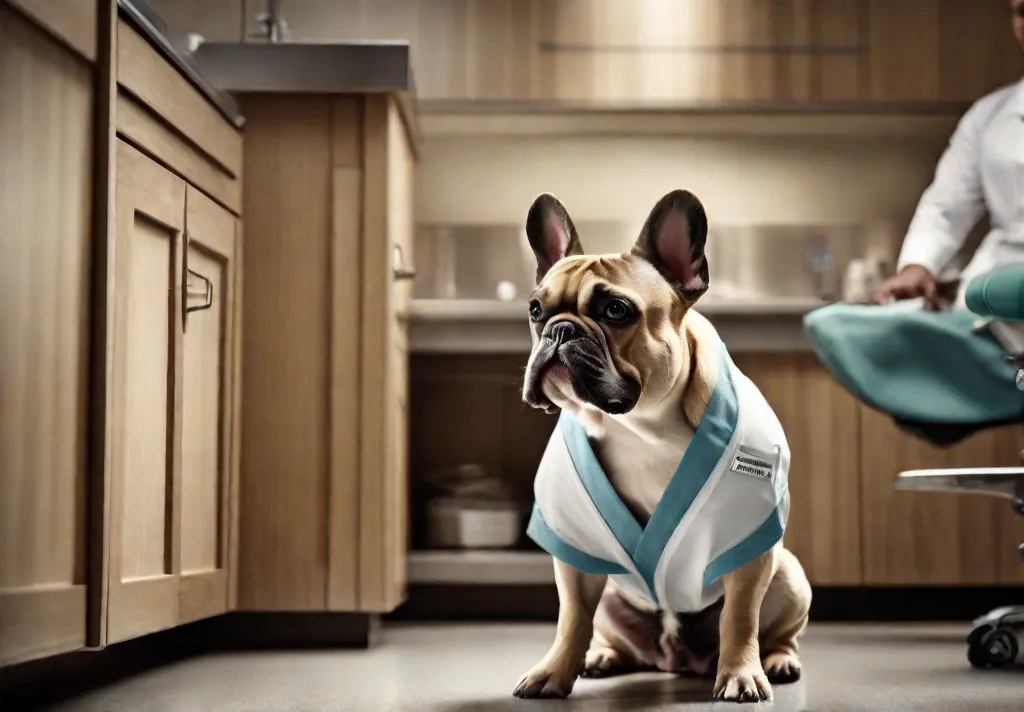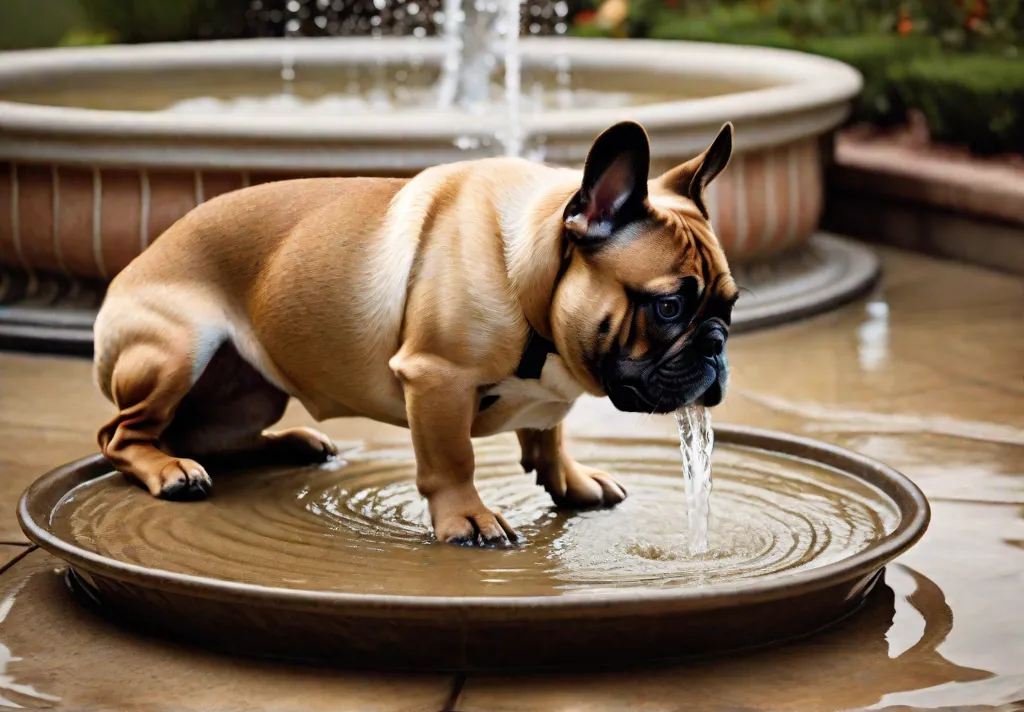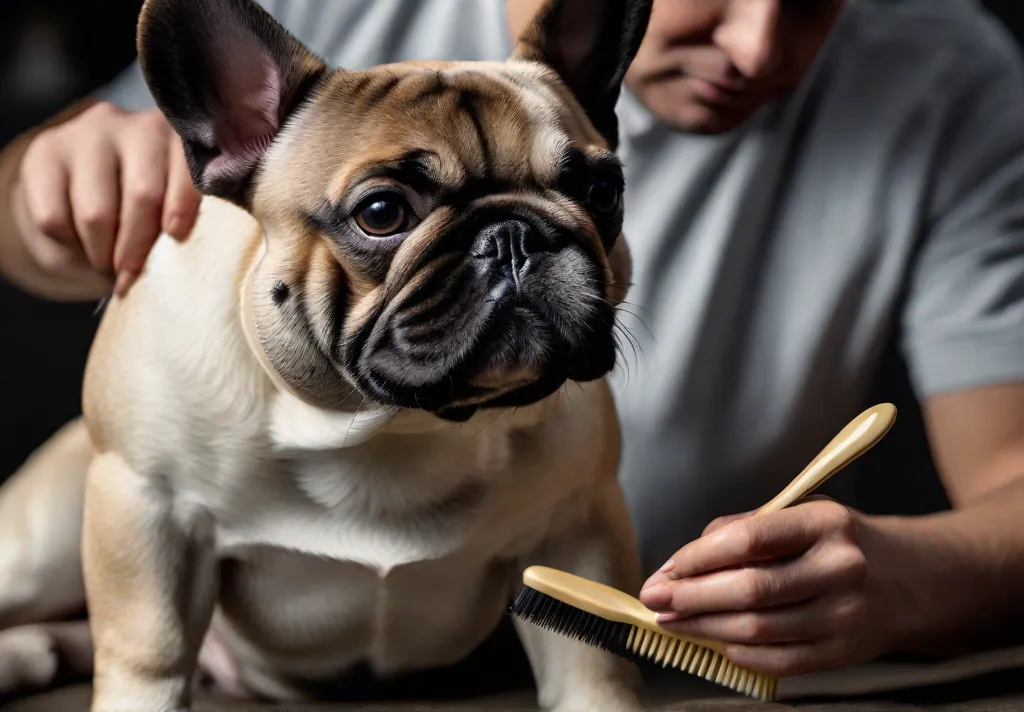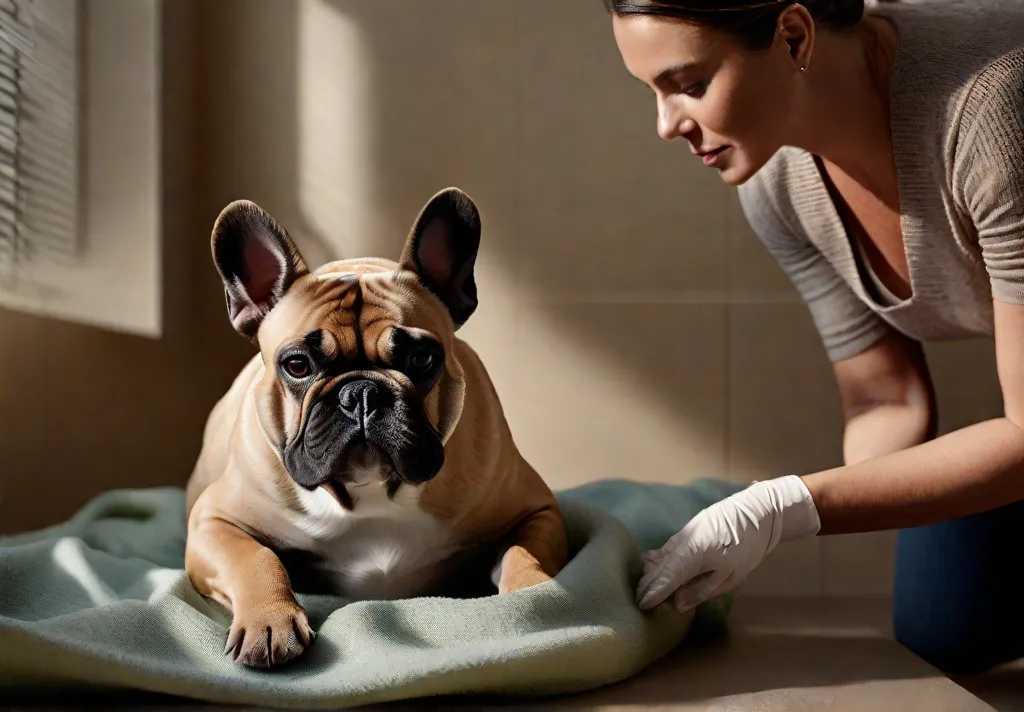French Bulldogs, with their adorable bat ears and squishy faces, have charmed their way into the hearts of dog lovers everywhere. As one of the most popular breeds in the United States, over 1 million Frenchies now reside as beloved family pets. However, their captivating charm should be consistent with the reality – these dogs have particular care needs.
As brachycephalic (short-nosed) dogs with compact bodies and delicate skin, French Bulldogs require informed owners willing to provide attentive care. Without proper management of their unique health tendencies, Frenchies all too often develop potentially severe issues like breathing difficulties, spinal problems, or destructive skin conditions.

Frenchie owners can drastically improve their pets’ well-being and longevity by understanding the intricacies of caring for this particular breed. This article will explore the 12 most critical areas French Bulldog owners must understand to give their wrinkly companions the best life possible.
Table of Contents
- 1 Why French Bulldog Care Stands Apart
- 2 12 Must-Know Care Tips for French Bulldog Owners
- 2.1 Get Educated on Brachycephalic Syndrome
- 2.2 Master the Art of Skin Fold Care
- 2.3 Prioritize Temperature Regulation
- 2.4 Choose Foods for Sensitive Systems
- 2.5 Structure Play Dates Around Nap Time
- 2.6 Master the Nail Trim
- 2.7 Clean Those Ears!
- 2.8 Pick the Perfect Collar
- 2.9 Treat Allergies Seriously
- 2.10 Prioritize Positive Training
- 2.11 Provide Proper Pain Management
- 2.12 Embrace the Velcro Dog Lifestyle
- 3 The Rewarding Journey Ahead
- 4 Frequently Asked Questions About French Bulldogs
- 5 Related posts:
Why French Bulldog Care Stands Apart
Before diving into the specifics, it’s essential to understand why the care requirements for French Bulldogs differ from other breeds. As outlined below, nearly every aspect of their physiology necessitates special attention to thrive.
Brachycephalic Challenges
With their squat faces, French Bulldogs belong to the Brachycephalic class of dogs, meaning “short-headed.” This facial structure narrows their airways, leaving these dogs prone to breathing issues, especially in hot and humid weather. Their short noses also limit their ability to regulate body temperature effectively.
Compact Bodies
The compact and stocky body shape that makes Frenchies so cute also puts pressure on their joints and spine, increasing the risk of mobility issues and back pain. Their coiled tails and screw-shaped hindlegs require extra stretching and joint support.

Delicate Skin
French bulldogs tend to have sensitive skin and are prone to allergies, rashes, and infections within their facial wrinkles. Their thin coats offer little protection from the elements or injury. Careful monitoring and gentle handling preserve their skin integrity.
When French Bulldog owners appreciate these unique predispositions and adapt their care routines accordingly, they set their fur babies up for healthy, joyful lives.
12 Must-Know Care Tips for French Bulldog Owners
Get Educated on Brachycephalic Syndrome
Over half of French Bulldogs suffer from Brachycephalic Airway Syndrome (BAS) – a catchall term for their breathing difficulties. The specific anatomical abnormalities behind BAS include:
- Stenotic nares (collapsed nostrils)
- Elongated soft palate
- Tracheal hypoplasia (narrowed windpipes)
- Laryngeal collapse
This impaired breathing can range from mild to life-threatening. Learn to recognize signs of respiratory distress like loud/difficult breathing, gagging, blue gums, or collapse. Mild cases can be managed with lifestyle adjustments, while severe cases require surgery.
Key Takeaway: Know the signs of BAS and be prepared to take action to ensure your Frenchie’s airways remain open.

Master the Art of Skin Fold Care
Skin fold infections are inevitable in the Frenchie, especially with all those face wrinkles and rolls. Moisture and debris easily get trapped, allowing yeast and bacteria to thrive. Stay vigilant with these prevention tips:
- Gently clean folds daily using cotton pads/baby wipes and an antiseptic cleanser
- Thoroughly dry any moisture within folds
- Apply antibiotic powder to skin folds weekly
- Inspect for redness, odor, or discharge indicating infection
- Discuss allergy medications if frequent ear/skin infections occur
Key Takeaway: Establish a daily ritual of caring for your Frenchie’s precious skin folds.
Prioritize Temperature Regulation
Given their brachycephalic challenges, French Bulldogs struggle significantly with temperature extremes. Get proactive with these strategies:
- Indoors: Maintain a comfortably cool indoor temperature around 65-72°F (18-22°C).
- Outdoors: Limit exercise to mild weather with ample shade and water.
- Summer: Avoid being outside during the hottest hours. Offer a cooling vest or mat.
- Winter: Protect your Frenchie with a coat on cold walks. Limit time outdoors.
Stay alert for signs of overheating (heavy panting, drooling), and immediately get your Frenchie to a more relaxed area. Never leave them unattended in a hot or cold vehicle.

Key Takeaway: Support your heat-sensitive Frenchie by sheltering them from temperature extremes.
Choose Foods for Sensitive Systems
Many French Bulldogs suffer from sensitive stomachs and food allergies. Finding the proper diet is crucial but may require some trial and error.
Recommended Diets:
- Limited Ingredient: Focus on digestible proteins like chicken, fish, or lamb with minimal additives
- Hydrolyzed Protein: Highly digestible proteins broken down for easy absorption
- Novel Protein: Uncommon protein sources like kangaroo, bison, or duck that dogs are less likely to be allergic to
Work closely with your vet to select a diet that nourishes your Frenchie while avoiding adverse reactions.
Key Takeaway: When discovering the ideal diet for your Frenchie’s needs, patience pays off.
Structure Play Dates Around Nap Time
The concept of an active French Bulldog seems contradictory – this breed is content to mosey rather than play vigorously casually. Bred for companionship, they thrive on quality time with their beloved humans. Prioritize snuggle sessions and moderate activity levels that respect their brachycephalic limits.

Ideal Activities:
- Short, leisurely walks
- Gentle games of fetch
- Trick training sessions
- Off-leash play with compatible canine friends
Remember to build in ample naptimes to let your sleepy pup recharge.
Key Takeaway: Focus more on mental stimulation than physical exertion when bonding with your laidback Frenchie.
Master the Nail Trim
With their tight foot structure, overgrown nails can quickly become painful by pushing sideways on their toes. Get your Frenchie comfortable with handling their paws early on. Introduce nail clipping slowly using lots of positive reinforcement and patience.
Nail Trimming Tips:
- Use a well-lit, quiet area without distractions
- Have handy treats to reward cooperation
- Gently massage toes before extending each nail
- Snip only the white tip of the nails to avoid quick
- Introduce electric nail grinders cautiously to avoid frightening them
Key Takeaway: To prevent discomfort, develop competence and confidence by trimming your Frenchie’s nails.

Clean Those Ears!
As floppy-eared dogs, French Bulldogs readily develop moist, yeasty ear infections. Weekly ear cleaning is a must.
Supplies Needed:
- Cotton balls/pads
- Dog ear wash solution
- Treats
Procedure:
Situate your Frenchie and give them a treat
Apply ear wash to a cotton pad (Never directly into the ear canal!)
Gently wipe away debris from the visible ear flap and canal entrance
Allow your dog to shake their head before giving praise and another treat
Look inside ears weekly for redness, swelling, odor, or discharge indicating infection. See your vet promptly if these develop.
Key Takeaway: Establish an enjoyable weekly ear cleaning routine to prevent miserable infections in your Frenchie.
Pick the Perfect Collar
The compact French Bulldog build causes certain collar risks. Traditional collars put pressure on their windpipes and can aggravate breathing troubles. Instead, harnesses should be explicitly designed for brachycephalic breeds.

Ideal Collar Features:
- Made of soft, gentle material (nylon or leather)
- Broad contact surface to disperse pressure
- Located low on the chest instead of the neck
- Adjustable for a proper close fit
- Easy-release buckle or snap for safety
A well-fitted harness keeps your Frenchie comfortable and secure when out and about.
Key Takeaway: Choose an appropriate harness over a traditional collar to avoid injuring your Frenchie’s delicate airways.
Treat Allergies Seriously
Thanks to overactive immune systems and skin folds harboring irritants, many French Bulldogs suffer from allergies and skin conditions. Pay attention to signs like:
- Itchy skin/ears
- Recurring skin/ear infections
- Hot spots
- Hair loss
- Rashes
Work with your vet to discover the triggers behind your Frenchie’s flare-ups. Common allergens include food ingredients, pollen, mold spores, and grass. Develop an action plan which may include:
- Anti-itch sprays/shampoos
- Antihistamines or steroids
- Immunotherapy injections
- Diet trial modifications
Don’t resign yourself to managing recurring skin issues. With some detective work, the majority of allergies can be effectively controlled.

Key Takeaway: Partner with your vet to uncover and treat the root causes behind your Frenchie’s allergies.
Prioritize Positive Training
Frenchies aim to please their beloved owners. Harness this trait by basing training on positive reinforcement like treats, toys, and praise. This strengthens the bond with your dog by making them excited to learn.
Essential Skills to Practice:
- Loose leash walking
- Coming when called
- Sitting politely to greet people
- Settling calmly when left alone
Avoid scolding or yelling at your Frenchie, which erodes trust and damages self-confidence. Patience and consistency are key!
Key Takeaway: Build a cooperative partnership with your Frenchie through positive reinforcement training.
Provide Proper Pain Management
The compact structure of French Bulldogs predisposes them to painful joint conditions like hip/elbow dysplasia and spinal disorders. Custom orthopedic beds, joint supplements, prescription pain relievers, and gentle exercise can all help manage discomfort.
Pay attention to subtle signs your Frenchie is hurting, like:
- Limping
- Lagging on walks
- Difficulty standing up
- Decreased activity level
- Irritability or other behavior changes

If your aging Frenchie seems stiff or sore, consult your vet about safe ways to comfort them. Custom treatment plans can significantly improve quality of life.
Key Takeaway: Be proactive about pain management to keep your senior Frenchie comfortable.
Embrace the Velcro Dog Lifestyle
Frenchies flourish as constant companions to their beloved humans. They pine without sufficient snuggle time! Plan on having your curious canine underfoot as you move about your home and run errands.
Tips for Living with a “Velcro” Dog:
- Involve them in household activities like folding laundry or prepping dinner
- Please bring them to pet-friendly stores and cafes whenever possible
- Offer mentally stimulating toys when you can’t actively engage them
- Crate train them to enjoy brief alone time without anxiety
- Ensure they get adequate exercise before leaving them home alone
Shower your devoted Frenchie with love and togetherness!
Key Takeaway: Prepare for delightful days adjoined at the hip with your affectionate Frenchie!
The Rewarding Journey Ahead
While French Bulldogs undeniably have unique care requirements, the payoff comes as an unbreakable friendship. When owners take the time to understand and adapt to the needs of this particular breed, they are richly rewarded with years of devoted companionship.

Keep this article’s care tips handy as you embark on your journey with one of these endearing brachycephalic bundles. By following these best practices for diet, skincare, exercise, training, and beyond, you equip yourself to navigate the intricacies of life with a Frenchie. Lean on your veterinary team for additional guidance when questions arise.
Most importantly, soak up all the squishy-faced kisses and belly rubs you can! Make each day with your wrinkly sidekick an absolute joy. Here’s to many wonderful years ahead with your beloved French Bulldog!
Frequently Asked Questions About French Bulldogs
How much exercise does a French Bulldog need?
French Bulldogs require 20-30 minutes of exercise daily, focusing more on quality time than strenuous activity. Several short 5-10 minute play sessions work well. Monitor your Frenchie closely for overheating.
What health issues are common in French Bulldogs?
This brachycephalic breed is prone to breathing difficulties, spinal disorders, joint disease, dental problems, skin fold infections, allergies, obesity, and heat stroke. Staying informed helps owners recognize issues early.
Are French Bulldogs easy to train?
Yes! Frenchies aim to please their owners and respond readily to positive reinforcement training and clear consistency. Use rewards like treats and praise to motivate them during short, engaging sessions.
Do French Bulldogs bark a lot?
Frenchies make good watchdogs and will alert bark, but most live peacefully alongside their families without excessive barking. Ensure they get adequate exercise and stimulation—some bark more when anxious or bored.
Are French Bulldogs good family pets?
Yes! Their affectionate, playful nature makes them excellent family companions. However, always supervise young children and teach them gentle handling skills to prevent injury.